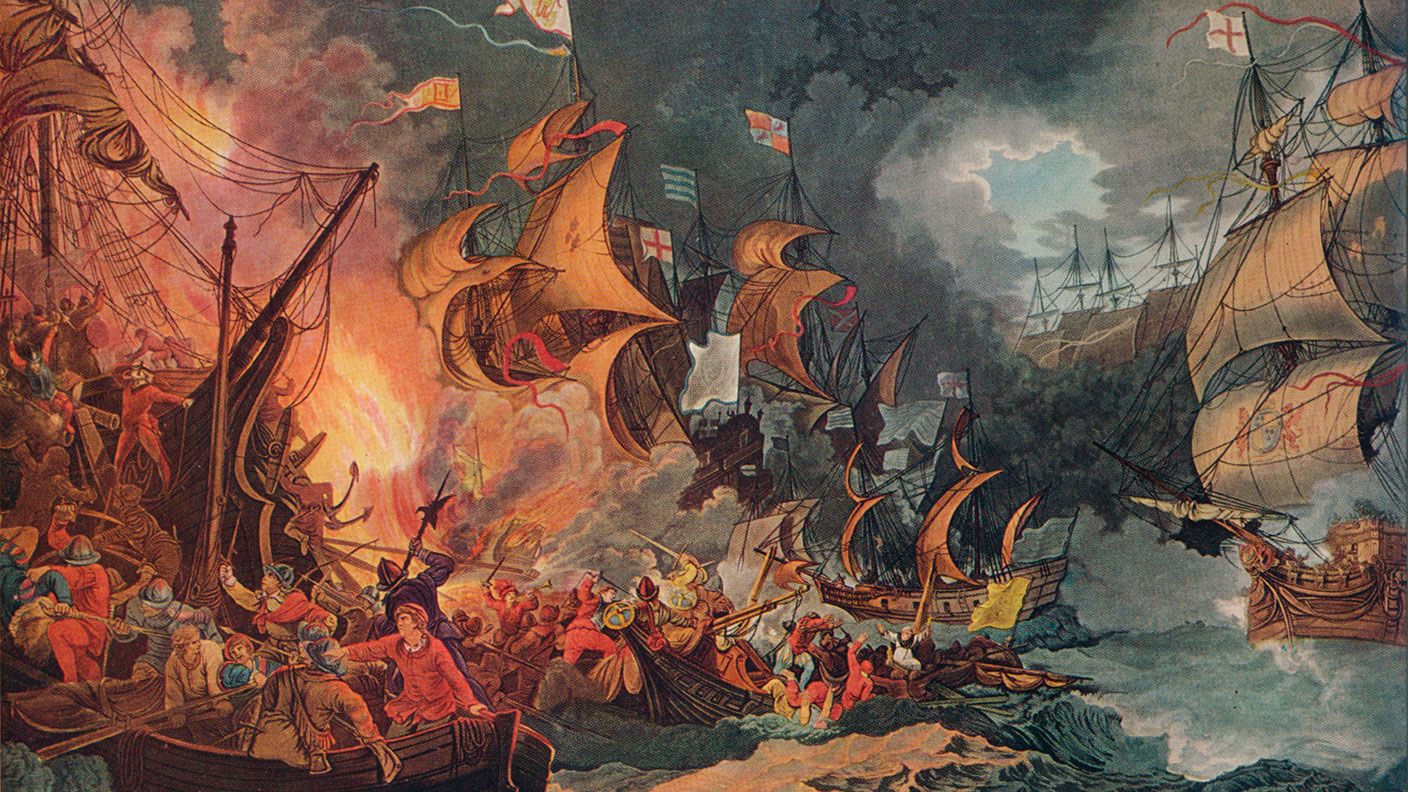
Get the latest financial news, insights and expert analysis from our award-winning MoneyWeek team, to help you understand what really matters when it comes to your finances.
You are now subscribed
Your newsletter sign-up was successful
Want to add more newsletters?

Twice daily
MoneyWeek
Get the latest financial news, insights and expert analysis from our award-winning MoneyWeek team, to help you understand what really matters when it comes to your finances.

Four times a week
Look After My Bills
Sign up to our free money-saving newsletter, filled with the latest news and expert advice to help you find the best tips and deals for managing your bills. Start saving today!
When Queen Mary I died, and with her England's brief and bloody restoration of Catholicism, she was replaced with Elizabeth I, who reimposed Protestantism.
But Philip II of Spain, Mary's widower, didn't take too kindly to this outrageous heresy. So he built a vast fleet of ships, and assembled an army of 30,000 men in the Netherlands. The two would join up and after a swift and efficient invasion, England would be restored to the Catholic fold.
Pope Sixtus V, having assigned the plan the status of a Holy Crusade, blessed the Grande y Felicsima Armada. And on 28 April 1588, with 130 ships under the command of the Duke of Medina Sidonia carrying 8,000 sailors and 18,000 soldiers, the Spanish Armada set sail from Lisbon.
MoneyWeek
Subscribe to MoneyWeek today and get your first six magazine issues absolutely FREE

Sign up to Money Morning
Don't miss the latest investment and personal finances news, market analysis, plus money-saving tips with our free twice-daily newsletter
Don't miss the latest investment and personal finances news, market analysis, plus money-saving tips with our free twice-daily newsletter
After a few delays for bad weather, they were sighted off Cornwall on 19 July, and soon after off Plymouth, where Sir Francis Drake was almost certainly not playing bowls.
The English fleet outnumbered them with smaller, nimbler ships, but the Armada had considerably more firepower. And the strict crescent formation they kept made inflicting damage on them very difficult. So the two fleets danced around each other, skirmishing up the English Channel until the Spanish anchored at Gravelines, now home to a French nuclear power station, but then part of the Spanish Netherlands.
On 28 July, the battle began in earnest. The English sent fireships – old ships loaded with pretty much anything that would burn – among the Spanish. The Armada broke formation, and was now vulnerable. And on 29 July, the English attacked in the Battle of Gravelines.
English ships and an unfavourable wind made escape back down the English Channel impossible, so the Armada fled northwards and attempted to return round the tip of Scotland and back down the west coast of Ireland. But again the weather intervened, with storms dashing many ships on the rocky coasts. Less than half the ships that set out returned safely.
The victory was a huge boon for Elizabeth, England and the Protestant faith, and dealt a massive blow to Spain's dreams of world domination.
Get the latest financial news, insights and expert analysis from our award-winning MoneyWeek team, to help you understand what really matters when it comes to your finances.

-
 Should you buy an active ETF?
Should you buy an active ETF?ETFs are often mischaracterised as passive products, but they can be a convenient way to add active management to your portfolio
-
 Power up your pension before 5 April – easy ways to save before the tax year end
Power up your pension before 5 April – easy ways to save before the tax year endWith the end of the tax year looming, pension savers currently have a window to review and maximise what’s going into their retirement funds – we look at how
